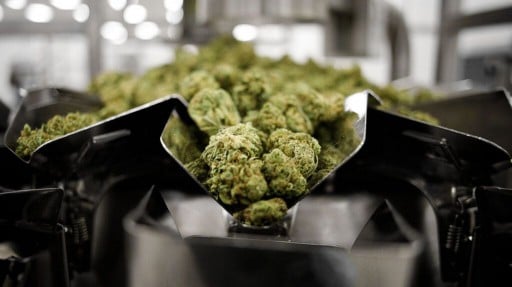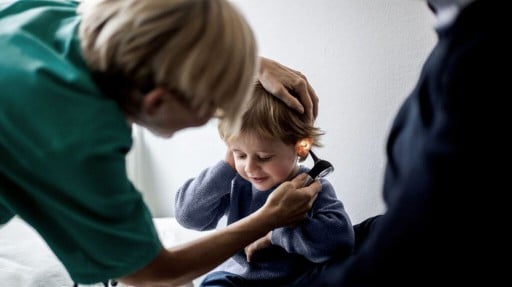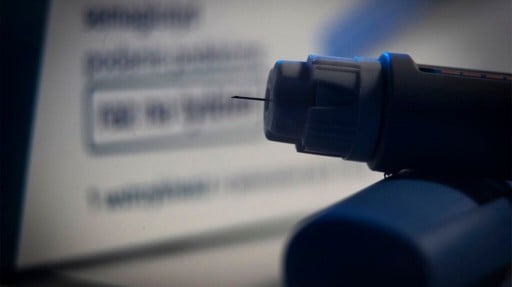
We include products we think are useful for our readers. If you buy through links on this page, we may earn a small commission. Here’s our process.
Medical News Today only shows you brands and products that we stand behind.
Our team thoroughly researches and evaluates the recommendations we make on our site. To establish that the product manufacturers addressed safety and efficacy standards, we:
- Evaluate ingredients and composition: Do they have the potential to cause harm?
- Fact-check all health claims: Do they align with the current body of scientific evidence?
- Assess the brand: Does it operate with integrity and adhere to industry best practices?
- Cannabis is being touted as an effective treatment for pain and a number of disorders, but researchers say opioid addiction likely isn’t among them.
- They note that there’s conflicting evidence as to whether cannabis helps alleviate pain and withdrawal or makes a return to opioids more likely.
- These latest findings neither confirm concerns about cannabis increasing non-medical opioid use in individuals being treated for opioid use disorder, nor do they endorse its efficacy in reducing non-medical opioid use.
Cannabis may work well as a treatment for pain or other health issues.
However, according to a study published in The American Journal of Drug and Alcohol Abuse, opioid addiction likely isn’t one of them.
The peer-reviewed study looked at thousands of people being
What to know about opioids
Opioids are effective painkillers but can also be highly addictive.
According to the Centers of Disease Control and Prevention (CDC), prescription drugs such as oxycodone (OxyContin), hydrocodone (Vicodin), morphine, and methadone are
The United States is in the midst of what’s been called an
According to the
Details from the cannabis and opioid addiction study
The study authors said their findings could have “substantial” implications for opioid treatment programs as many still require participants to abstain from cannabis before qualifying for opioid misuse treatment.
The research team was led by Dr. Joao P. De Aquino, an assistant professor of psychiatry at the Yale University School of Medicine in Connecticut, and colleagues including researchers from the University of Ribeirão Preto in Brazil.
The scientists said they wanted to test an increasingly popular idea that cannabis can help wean people off opioids. Medical cannabis is now legal in 40 states and Washington, D.C.
In an introduction to their study, the researchers noted that more than 120 people die from drug overdoses involving opioids each day and that the opioid crisis costs the U.S. economy more than $1 trillion a year.
They pointed out that while pain remains the most common reason for medical cannabis authorization, an increasing number of states are adding “alternatives to opioids” or “opioid-treatable disorders” to their lists of approved conditions. Which, in some states, includes treating opioid use disorder.
The study authors also said increasing legalization of cannabis means a relaxing of the idea that the substance can be harmful. They added that there are mixed opinions whether cannabis helps or hinders treatment of opioid use disorder. They also noted that there’s conflicting evidence as to whether it helps alleviate pain and withdrawal or increases the odds that someone will misuse opioids again.
“Clarifying how cannabis and opioids interact is crucial if we are to equip healthcare professionals to provide evidence-based addiction treatment, prevent overdose deaths and save lives,” said Gabriel Costa, a researcher at the University of Ribeirão Preto, in a statement.
What the research on opioid use disorder and cannabis revealed
The team did a systematic review and meta-analysis of existing research, combining results from 10 longitudinal studies involving 8,367 individuals who were receiving medication (buprenorphine, methadone, or naltrexone) to treat opioid use disorder.
The subjects were monitored for an average of 10 months for non-medical opioid use, including those not prescribed to the individuals, taking more medication than prescribed, and using the drugs without a prescription.
The study authors also compared the frequency of opioid use between people who used cannabis, typically obtained from non-regulated sources, as well as those who didn’t use cannabis.
The researchers reported that their results showed no link between cannabis use and rates of non-medical opioid use.
“Overall, we found no significant association between cannabis and non-medical opioid use among patients receiving pharmacotherapies for opioid use disorder,” Costa said.
“These findings neither confirm concerns about cannabis increasing non-medical opioid use in individuals being treated for opioid use disorder, nor do they endorse its efficacy in reducing non-medical opioid use,” he added.
De Aquino, who is a specialist in treating substance use disorders and co-occurring medical and psychiatric disorders, said the team’s findings question “the ineffective practice of enforcing cannabis abstinence as a condition to offer life-saving medications for opioid use disorder.”
“Our data suggests healthcare systems should instead adopt individualized treatment approaches which take into account each patient’s circumstances,” De Aquino said. “This would include assessing cannabis use disorder, a problematic pattern cannabis use that affects a person’s wellbeing and ability to function, addressing pain management needs and treating co-occurring psychiatric conditions, such as depression and anxiety.”
Experts reaction to the cannabis study
One doctor and cannabis expert told Medical News Today the study was far too unwieldy with not enough control factors to draw any real conclusions.
“The conclusions drawn in this study are incorrect, based on the fact that they are using faulty data, that they themselves note, which is that there are differences in how cannabis use was measured,” said Dr. Sherry Yafai, an emergency medicine physician at Saint John’s Physician Partners Urgent Care as well as an adjunct assistant professor at Saint John’s Cancer Institute in California.
Yafai told Medical News Today the study didn’t account for dosage, type of cannabis, how it was administered, or levels of the active ingredient THC.
“Another glaring omission… is the context in which cannabis is used, specifically that cannabis use was ‘taken outside of medical guidance,’ Yafai added. “Physicians in the context of this research were relying on ‘budtenders,’ individuals with zero medical background and often with only a high school level education, to provide medical guidance. Of course, these patients have the potential to fail without proper guidance.”
Yafai also noted the differences among users could be as extreme as one person using 30 times a day while another may be using a topical creme “once in a while.”
“To accurately reflect on the usage of a medication – cannabis – to assist in the removal of another medication – opiate or benzodiazepine or hypno-sedatives – it’s necessary for a physician to responsibly guide, monitor, and treat patients, she said. “The misperception that patients, in a state of addiction, can do this on their own or with the help of an ill-advised budtender is absolutely false.”
Yafai added that the study did correctly conclude that people may be unable to use cannabis effectively on their own to stop the cycle of opiate addiction.
“Ultimately, we will not be able to draw accurate conclusions based on the current data, which from the start falsely categorizes all users of cannabis in the same basket and lacks any medical guidance, dosages and specific cannabinoid regimens,” Yafai said.
The medical uses of cannabis
Dr Benjamin Caplan is a family physician in Boston and a cannabis advocate who authored a 2023 book called The Doctor-Approved Cannabis Handbook.
Caplan told Medical News Today the medical uses of cannabis struggles against “decades of prohibitionist literature (that) will continue to bear the mark of misunderstanding and bias, likely for generations.”
“With me, a striking nine out of ten patients who regularly consume opioids have reported a significant reduction in their reliance on these medications when incorporating cannabis into their treatment regimen,” Caplan said. “This pattern is not merely anecdotal. It’s a consistent trend observed across a wide spectrum of patients, both those who are prescribed narcotics over a short-term – post-operatively or during acute periods of pain – and those on long-term opioid regimens to manage debilitating chronic pain.”
Caplan said that instead of the harsh effects of opioid addiction, people treated with cannabis experience a gentler, more manageable form of relief, over which they have a stronger sense of control.
“This shift can be partly explained by the fascinating interplay between certain cannabinoids and the brain’s so-called
Caplan added it’s “critical to remember that correlation is not causation, (which is such a common misunderstanding of scientific literature).”
“A rooster’s crow does not cause the sun to rise, but a scientific study will almost always find them to be intimately connected,” he explained.




